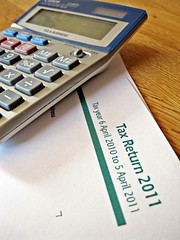Small Business Bookkeeping Best Practices: How to Avoid an Audit
 No one enjoys being audited. It’s a laborious, stressful process, particularly for small business owners. Fortunately, you can decrease your chances of being audited by following the small business accounting tips listed below.
No one enjoys being audited. It’s a laborious, stressful process, particularly for small business owners. Fortunately, you can decrease your chances of being audited by following the small business accounting tips listed below.
It’s not personal. It’s business.
This Godfather line is a good small business finance mantra for those who hope to avoid being audited. Keep your personal and business expenses absolutely separate. Pay yourself a living wage, rather than simply taking home the monthly income surplus.
Small business bookkeeping services also emphasize that if you must take a loan from the business, you should document it with a promissory note. Every small business accounting move you make should be well documented. (If you are looking for more tips on tracking expenses, income and other important small business finance metrics, arrange for a session with a consultant who specializes in small business accounting.)
Taxes: Go pro.
It’s only logical that those who fail to pay their taxes on time are more likely to be audited. Business tax returns with errors also attract tax auditors’ attention. Rather than driving yourself crazy at tax time, hire a CPA to file your taxes. That way, you know everything will be done correctly and on time, and you’ll be less likely to be audited.
Carefully track labor.
Employee and contractor pay is another area that frequently attracts the attention of auditors. Fastidiously track your labor costs to cut your chances of being audited. Research and follow 1099-contractor laws for your state. Once a year, review your vendor files to check the compliance of 1099-contractors. You should also keep and perform annual in-house audits for your employee files. Overall, a logical organizational scheme is to categorize your labor according to worker’s compensation insurance categories.
Even if you are audited, being organized and prepared with these small business finance practices will minimize time lost. Small business finance experts estimate that an audit can take 20 hours with disorganized records and as little as two hours if your small business accounting is in order. Whether or not you are ever audited, sticking to these smart small business finance practices is always good business.
[photo by: Images_of_Money]
About the Author Barb Fisher
Barb is the CEO of Fisher Bookkeeping, an outsourced bookkeeping consultancy that provides small businesses with a full-service financial department. Her favorite aspect of work is to break down the accounting to meaningful bits, so entrepreneurs can make a powerful difference in their own business. She's also a power lifter (squat: 215, DL: 270).
